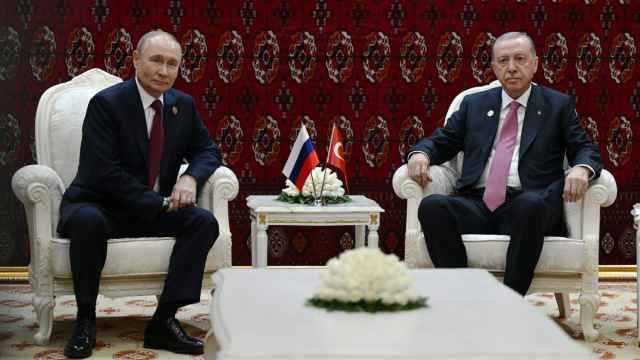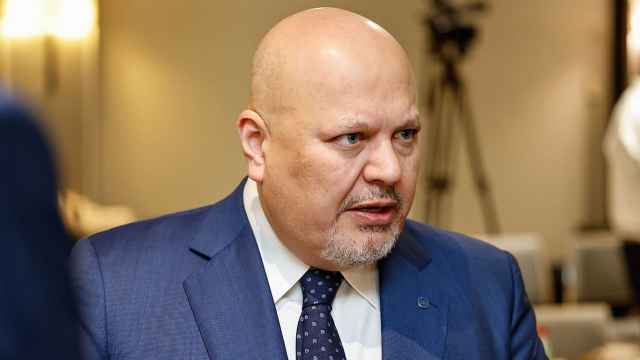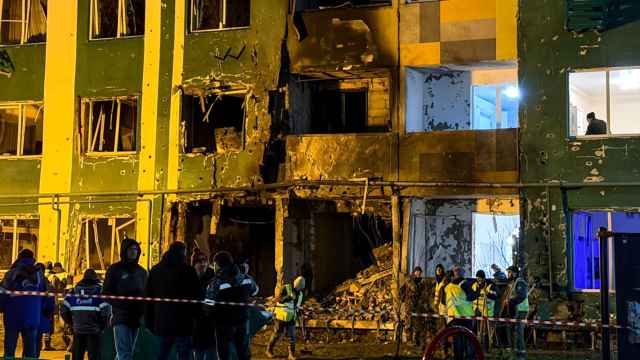U.S. Secretary of State John Kerry hopes to explore Russia's willingness to curb its involvement in Ukraine and its support for Syria's president at talks on Tuesday with President Vladimir Putin.
Kerry flew to the Black Sea resort of Sochi for the highest-level U.S. visit to Russia in two years, to discuss issues including the Iran nuclear talks, Yemen and Libya.
With relations between Russia and the United States at their lowest level since the Cold War, the trip appeared designed as much to maintain contact as anything else.
"It's important for us to keep these lines of communication open. It's important to try to talk to the senior decision-maker," said a senior U.S. State Department official who briefed reporters travelling with Kerry.
"We have a lot of business that we could do together if there is interest," said the official, who spoke on condition of anonymity.
Putin's spokesman, Dmitry Peskov, welcomed the meeting as a positive step.
"Through dialogue, it is possible to find ways for a normalization, closer coordination in dealing with international problems," he Peskov reporters.
But, he added: "Russia was never the initiator of this cooling of relations."
Kerry is also expected to meet Russian Foreign Minsiter Sergei Lavrov while in Sochi.
Relations between Washington and Moscow have sunk since Russia annexed the Crimea peninsula in March of last year and backed pro-Russian rebels in eastern Ukraine. Moscow accuses Washington of orchestrating last year's overthrow of a Ukrainian president who was backed by Russia.
The United States has accused Russia of failing to withdraw heavy equipment such as air defense systems, tanks and artillery from eastern Ukraine in violation of a peace plan agreed in February and known as Minsk 2.
Russia denies Western and Ukrainian accusations that it is arming the pro-Russian separatists battling the government and supporting them with its own military forces. More than 6,100 people have been killed since April 2014 in the Ukraine crisis.
The United States and European Union imposed economic sanctions on Russia after it annexed Crimea and have intensified them since. The U.S. official dangled the possibility of easing them if Russia complied with the Minsk plan, which calls for withdrawing heavy weaponry and respecting Ukraine's border.
Washington and Moscow are also at odds over the civil war in Syria, where Russia has backed Syrian President Bashar al-Assad while the United States wants a political transition to end his family's four-decade rule.
While there have been no outward signs of a Russian reversal on Ukraine or Syria, U.S. officials hope recent defeats to Assad's forces may change Moscow's stance.
Insurgents overran the town of Jisr al Shughour last month and the provincial city of Idlib a month earlier, both in the rich agricultural province of Idlib.
The senior U.S. official also said it was important to meet Putin to discuss the Iran nuclear talks, which aim to reach an agreement by June 30 under which Tehran would curb its atomic program in exchange for the easing of economic sanctions.
A Message from The Moscow Times:
Dear readers,
We are facing unprecedented challenges. Russia's Prosecutor General's Office has designated The Moscow Times as an "undesirable" organization, criminalizing our work and putting our staff at risk of prosecution. This follows our earlier unjust labeling as a "foreign agent."
These actions are direct attempts to silence independent journalism in Russia. The authorities claim our work "discredits the decisions of the Russian leadership." We see things differently: we strive to provide accurate, unbiased reporting on Russia.
We, the journalists of The Moscow Times, refuse to be silenced. But to continue our work, we need your help.
Your support, no matter how small, makes a world of difference. If you can, please support us monthly starting from just $2. It's quick to set up, and every contribution makes a significant impact.
By supporting The Moscow Times, you're defending open, independent journalism in the face of repression. Thank you for standing with us.
Remind me later.





